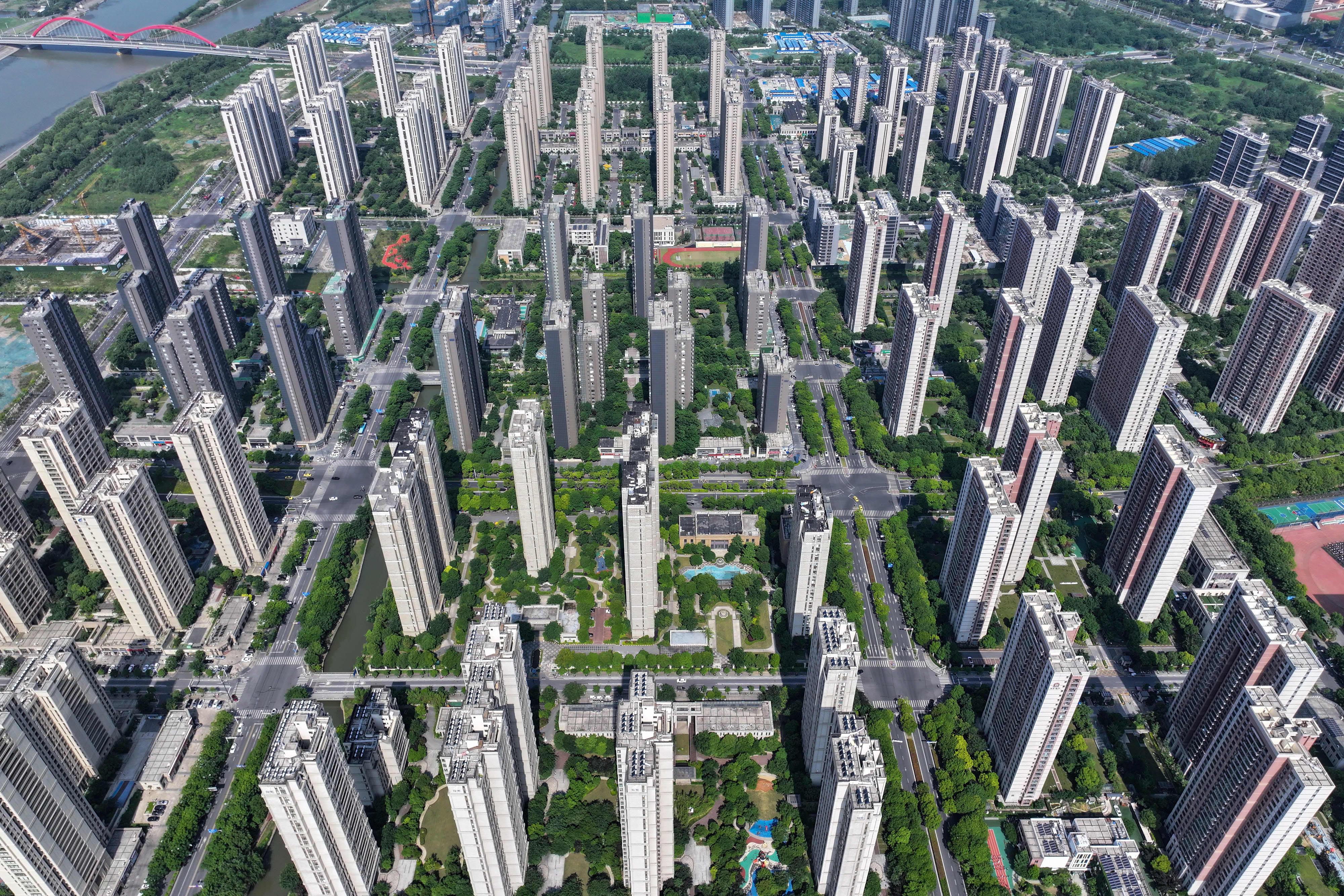These and other measures announced Friday marked Beijing's latest efforts to address issues in the massive real estate sector.
The People's Bank of China will provide 300 billion yuan ($42.25 billion) to financial institutions to lend to local state-owned enterprises (SOEs) so they can buy unsold apartments that have already been built.
Also Friday, the PBOC removed a floor on mortgage interest rates, and lowered the minimum down payment ratio for first- and second-time home buyers.
BEIJING — Chinese authorities on Friday pledged new support for state-owned enterprises to enable them to buy unsold apartments, in an effort that could help developers get more funding to finish construction on pre-sold properties.
These and other measures announced Friday marked Beijing's latest efforts to address issues in the massive real estate sector.
"I think it is encouraging that the policy is taking a turn of direction trying to support the housing market," said Zhu Ning, a professor of finance at Tsinghua University and author of the book "China's Guaranteed Bubble."
People's Bank of China Deputy Governor Tao Ling told reporters at a briefing Friday the central bank would provide 300 billion yuan ($42.25 billion) to financial institutions to lend to local state-owned enterprises (SOEs) so they can buy unsold apartments that have already been built.
The central bank expects the support to release 500 billion yuan in financing for such purchases, which the SOEs could turn into affordable housing.
The real estate companies can then use funds earned from those sales to complete construction on other apartments, the central bank said.
As for unfinished, pre-sold properties, the National Financial Regulatory Administration Deputy Director Xiao Yuanqi told reporters that commercial banks have provided 935 billion yuan in loans to finish construction on whitelisted projects since the program was released in January.
"The government's purchase of housing inventory can inject more liquidity to developers, who could then have more resources for housing delivery," Larry Hu, chief economist at Macquarie, told CNBC. "Finally the government stepped in as the buyer of the last resort."
"At this stage, it's mainly SOEs and local governments to implement the policies, but their resources may be too limited to move the needle at the macro level," he said. "Later on, we might see more efforts from the central government."
Developers "that must go bankrupt should go bankrupt, while those that need to be restructured should be restructured," Dong Jianguo, deputy head of the ministry of Housing and Urban-Rural Development, told reporters in Mandarin, translated by CNBC. He said homebuyers' interests and rights should be prioritized, and those that violate the law should be punished.


Not sure why you omitted the rest of the sentence:
as it explains the difference. TARP purchased shares from the banks with the money. It later sold the shares and recovered the majority of the money. I assume the other ~$13 billion was lost in operating costs (or possibly graft, there's always some graft). Ultimately TARP didn't cost the government very much.
deleted by creator